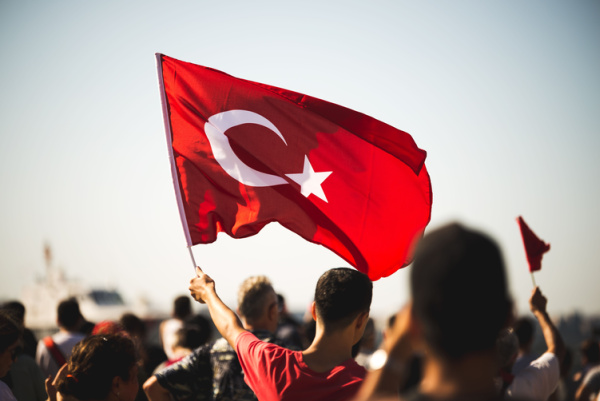Can the Turkish Opposition Win Without Promising Social Change?
By Barış Soydan
March 24, 2022
While the disaster that struck Turkey on February 6 has brought attention to the collusion between political power and construction companies, the fact that the opposition maintains the same unhealthy relations with business where it’s in charge and its reluctance to address the concerns of the poorer classes preclude deeper, systemic changes if it wins the election. But without holding out the prospect of major social and economic reform, it remains to be seen whether the opposition succeeds in beating Recep Tayyip Erdoğan.

Mahçupyan: Turkey has not become a society
Etyen Mahçupyan in Karar asks if the new constitution that is going to be drafted is going to be the expression of a societal compact or the expression of the will of the side that is politically strongest. In Turkey it has so far always been the latter that has prevailed. A societal compact has eluded us for a very fundamental reason: we have yet not become a “society.” Since the days of Byzantium, we are a people of different cemaat -- fraternities -- who exclusively value their own identities, desires, choices and victimhood. Even though our experience to live alongside the “others” is age-old, our will to live “together” is weak. We have almost no habit of being curious about those who are different, of building relations, of listening and of understanding. Yet the historical dynamic in this geography has been conducive to creating and sustaining differences. Today we are not only facing different ethnicities and sects. There are also different life styles, value systems and mentalities. A societal compact must have a base that includes all of these differences.
Selvi: AKP should be embracing
Abdülkadir Selvi in Yeni Şafak writes that the Erdoğan-Davutoğlu agreement prevented a big danger for the AKP. At least, they did not allow the virus of “two lists” and “two candidates” to enter the body. Nonetheless, it would have been better if the AKP had not gone through an incident like this at all, which has no place in its tradition. History shows that when parties that symbolize stability lose their stability, Turkey loses its stability. Süleyman Demirel said that “My biggest political error was not preventing the split of the AP (in 1970), and not preventing the departure of those who formed the Democratic Party.” For the time being, the danger has been averted. How nice it was that the prime minister sent a message to the eleventh president Abdullah Gül in his speech. It is crucial that the status of names like Bülent Arınç, Ali Babacan, Taner Yıldız, Hüseyin Çelik, Sadullah Ergin and Beşir Atalay who were left out in the process now is preserved. To protect the unity of the AKP is absolutely crucial. Because we don’t know what awaits the AKP after the election. Since Gezi, people have become very divided. The most important thing that the AKP can do is to embrace our people. But first, AKP needs to be embracive internally.
Akyol: the new AKP
Taha Akyol in Hürriyet writes that the new AKP is much more than ever before under the control of Erdoğan. One of the leading names of the party told me this on the phone the other day: “None of the names that Davutoğlu insisted on having on the party leadership was included in the list. Meanwhile, names that he emphatically did not want were all included in the list.” It is obvious that the same will go for the candidate lists for the election. After Abdullah Gül, Bülent Arınç has also been purged, and the founding cadres of the party have been neutralized. From now on, there will be no more different voices; there are few names left that can warn, and who can express societal diversity within the party. Of those who “departed,” Ali Babacan and Mehmet Şimşek were names who defended the independence of the Central Bank, economic rationality and European norms. Of the symbolic names, Sadullah Ergin and Osman Can are out of the list. Ergin was the architect of the judicial reforms that brightened the face of Turkey. Professor Osman Can meanwhile, was a lawyer who had made a career with his liberal views and who defended the EU’s legal framework. And speaking of the law, it is an important sign that the person who headed the mob that attacked the Hürriyet newspaper was elected to board of the party at the congress. And most importantly, the question is what kind of leverage a government who is headed by a prime minister who could not select his team and the party group in parliament is going to have!
Taking it to the streets: Turkey's rising social tensions
By Gareth H. Jenkins
September 18th, 2015, The Turkey Analyst
The recent spate of violent protests by Turkish ultranationalists – including attempted lynchings of ethnic Kurds -- and the attacks by government supporters on the Hürriyet newspaper have reinforced already serious concerns about both the deepening fissures in Turkish society and the continuing weakening of the rule of law in the country.



